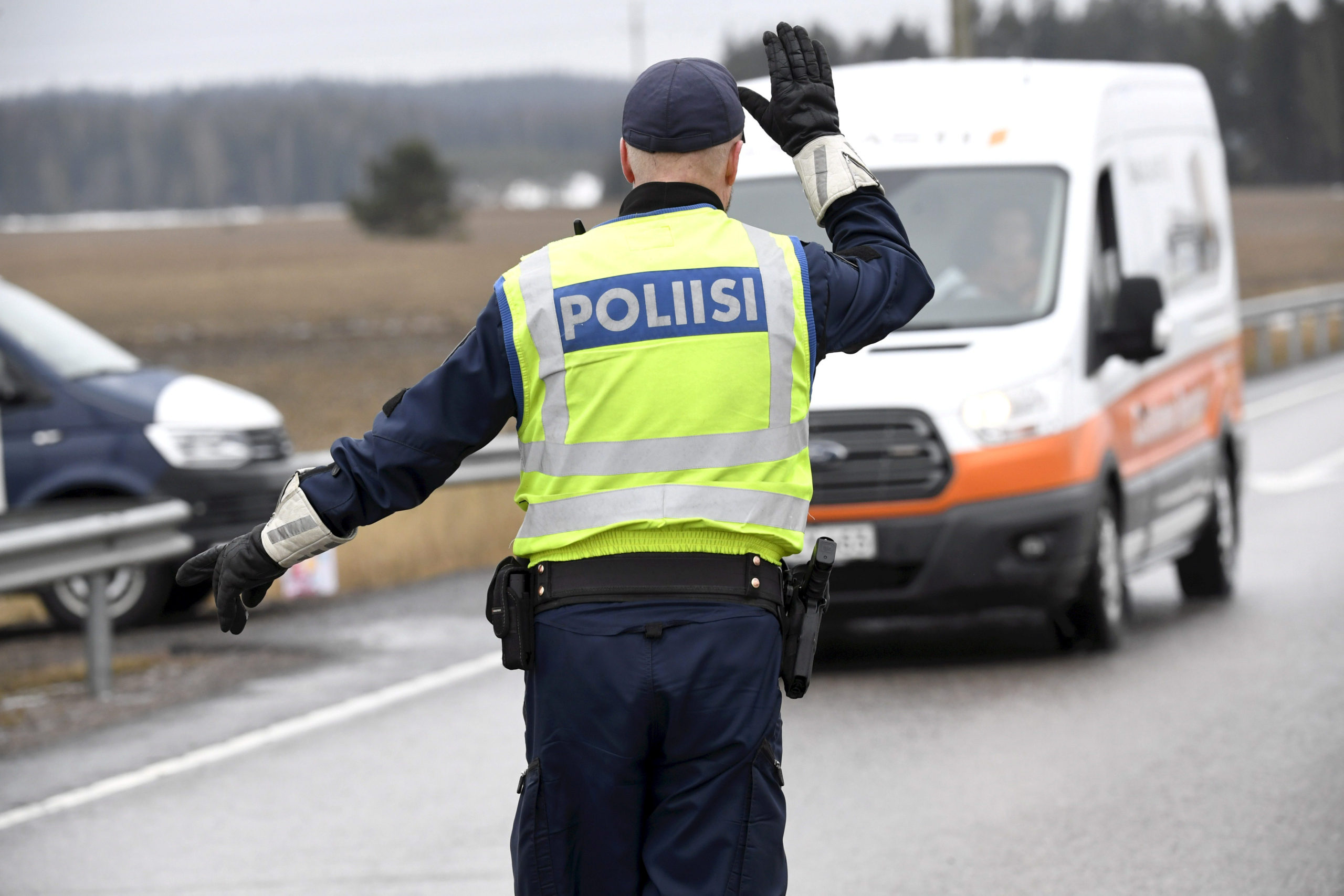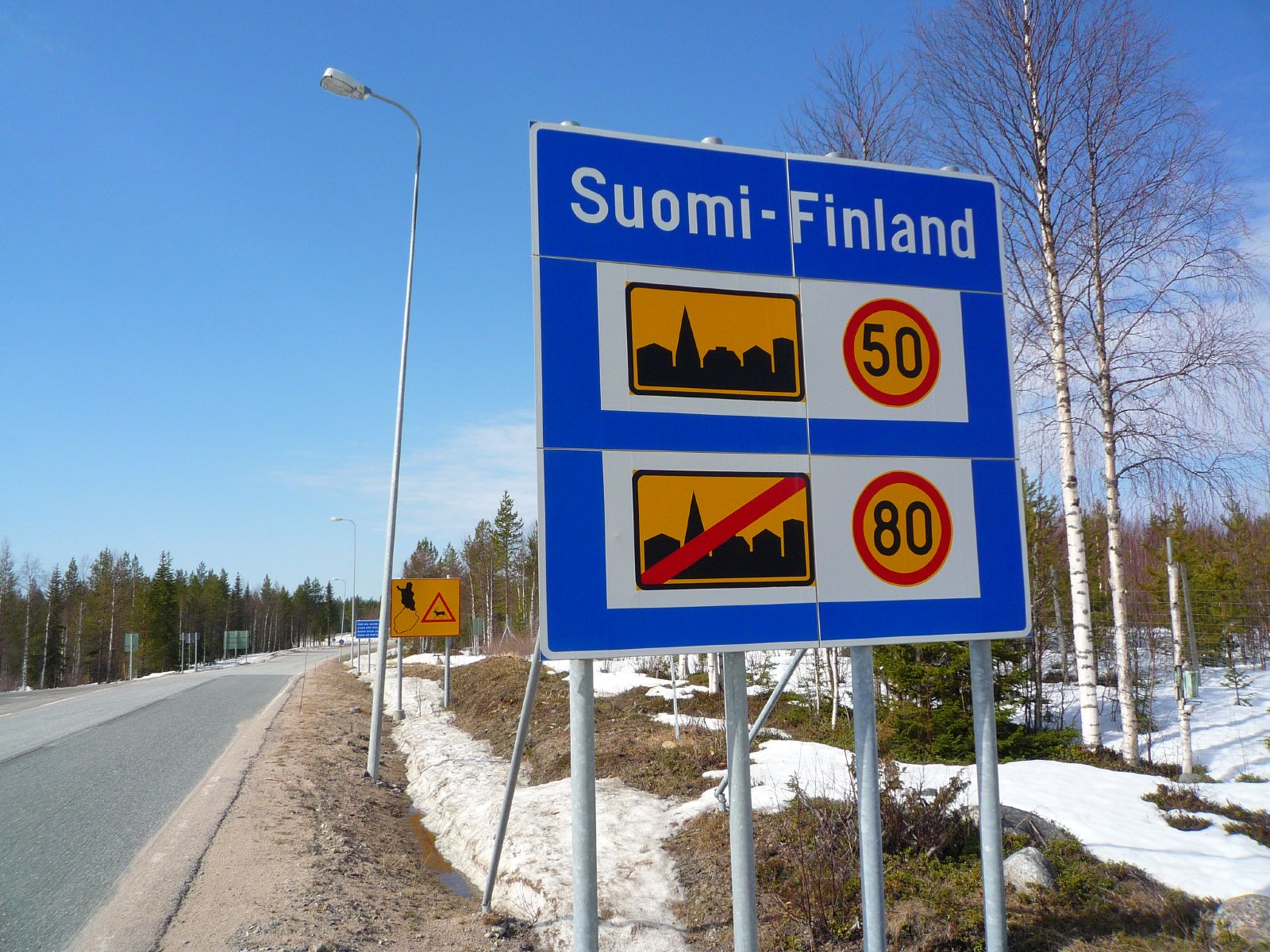Tough new rules all but seal Finland’s borders with its Nordic neighbors
Only the most essential workers and goods may cross from Norway and Sweden as Helsinki seeks to keep Finland's coronavirus outbreak in check.

Finland’s government announced new border-crossing restrictions Tuesday aimed at limiting incoming traffic from Sweden and Norway to only essential workers and freight. The measures, in effect until at least May 13, are intended to slow the spread of the COVID-19 virus in Finland. But doing so will make life difficult in a region where borders have long served only as a formality.
“The government’s aim is to further reduce movement in the common travel-to-work area along the borders with Sweden and Norway,” the government said in a statement. “Only strictly necessary travel to work will be allowed, and employees must carry a certificate from their employer stating that the work is essential.”
Today’s announcement comes after Finland initially implemented border-crossing restrictions on March 19. Those measures have brought down the number of people arriving in Finland each day by about 95 percent, according to Rajavartiolaitos, the national border patrol agency.
“The restrictions have had an impact, and now we’ll keep them in place,” Maria Ohisalo, the interior minister, said during a press conference today to present the new rules.
[In face of uncertainty about Russia, a Nordic gang of four emerges]
Before the coronavirus came to the region, some 3,000 people crossed into Finland from the west each day to work. While they had been permitted to continue do so, the number of border crossings in the region had falling to about 1,200 after the restrictions were implemented as people began working from home.
The new restrictions will drive that number down even further. The border closing means that only Finns returning from abroad, as well as to those with essential business in Finland, may enter the country, but they will be required to isolate themselves for 14 days upon returning.

For now, healthcare and transport workers commuting to Finland are exempt from the new rules entirely – though drivers will be provided with renewed instructions for reducing the spread of COVID-19
The Finnish government is asking employers to look into providing housing for healthcare who commute to Finland until the measures can be lifted. It warns that, should the virus spread further, they will also be barred from crossing the border.
[Renewed EU funding will keep a Scandinavian Arctic fox program going]
While Sweden is concerned about the effects of the border closing on its ability to provide healthcare in its northern regions, Finland, which appears to have its COVID-19 outbreak under control is concerned that Sweden’s relaxed strategy for addressing the virus will result in healthcare workers living or working there becoming infected with the COVID-19 virus and bringing it across the border.
In order allay those fears, the foreign ministers of the two countries reached a deal that will see Sweden begin testing healthcare workers more frequently for the virus and providing them with additional protective equipment. Finns working in the Swedish healthcare sector will increasingly be offered temporary housing in Sweden.
All Swedes and Norwegians permitted to enter Finland to work are being asked to remain in isolation on both sides of the border. Employers in Finland had already been instructed to minimize their employees’ cross-border movements, but, now, Finns living or working close to the border of Sweden and Norway are also being asked to isolate themselves.